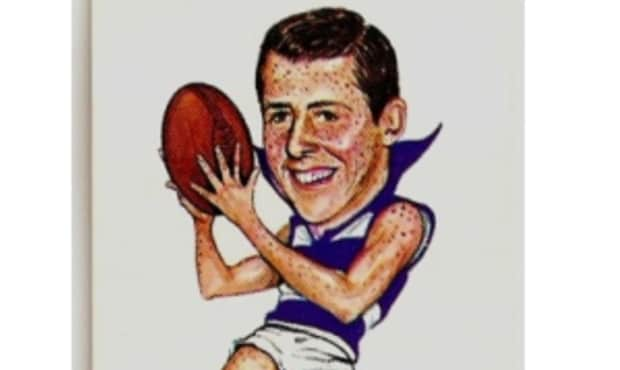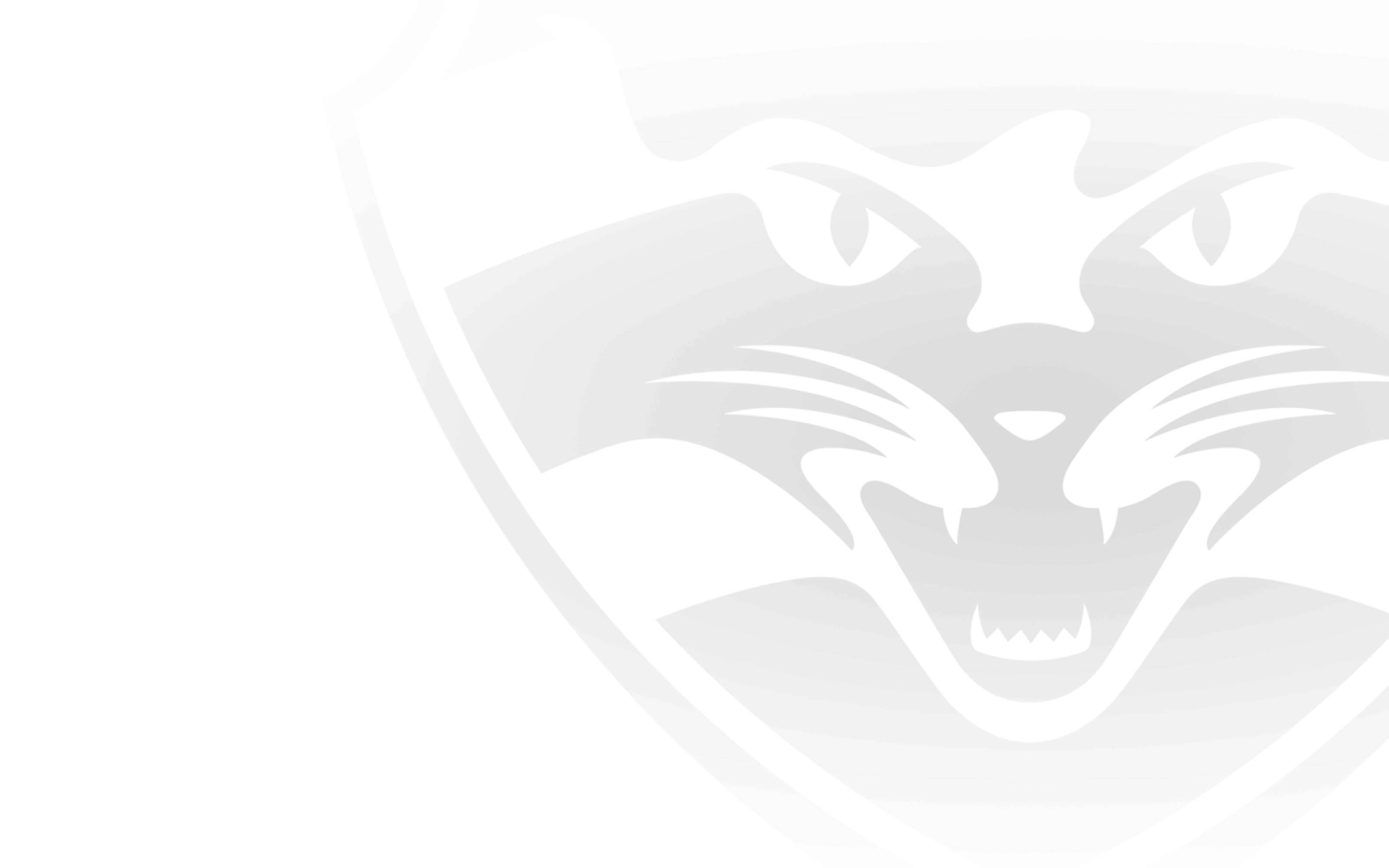With Anzac Day being commemorated on Monday, Cats Media has delved into its archives to remember the former Geelong players who have served in conflicts around the world.
This story about Wayne Closter, who is now 71, was first published in the AFL Record for the Anzac commemoration round in 2009.
Wayne Closter still seems surprised as he recalls how he burst into VFL football in round one, 1964.
“I couldn’t believe it. One day I was a country footballer, the next I was running out on to the MCG to play for Geelong against Melbourne in front of 60,000 people.”
“At 19, I was the only newcomer to the 1963 premiership side. I was terribly nervous,” he says.
A near best-on-ground performance on the wing launched a sparkling 191-game career. “Next day I was interviewed on Nine’s Tony Charlton football show and that was a big deal.”

A caricature of Wayne Closter that appeared on a 1960s footy card
Closter played every game that year until an injury in the first semi-final against Essendon saw him miss the preliminary final. Outside football, he did clerical work and studied accountancy at night.
Early in 1965, he was called up for national service in the infamous birthday ballot.
“I was devastated. I’d had just one year of football, playing with legends like (Polly) Farmer and (Billy) Goggin. Then I get a letter requiring me to serve in the army for two years and possibly go to Vietnam. I didn’t take it real well,” he says.
Closter’s accountancy studies gave him a three-year deferment but he bristles at the injustice of selective conscription.
“It seemed totally unfair that one 20-year-old in 10 was asked to give up two years of his life and perhaps be sent to war.”
He played on until May 1968 when he began his 10 weeks basic training at Puckapunyal. “It was a miserable time,” he says.
He played two games while on leave, a handful later in the season then six more in 1969 after jungle warfare training at Canungra.
“Geelong was very good as I couldn’t train with the club,” he says.
In July, he flew via Saigon to coastal Vung Tau to work in ordnance at the Australian supply base. There, he procured the arms and supplies shipped in from Australia, stored them and distributed them to units at nearby Nui Dat.
“We were next to a monstrous American air base,” he says.
“Their Phantoms would come scooting in from the South China Sea then zoom straight up at 90 degrees over the mountains behind Vung Tau. They were cowboys, those fellows.”
Closter’s time in Vietnam was uneventful, but he saw the horror of war first hand.
“I was in hospital once and the guy next to me had been in an armoured personnel carrier that had hit a mine. He’d lost both legs and an arm, and for a week he didn’t speak a word to me, the doctors or the nurses.
“I can’t remember his name but I’ll never forget the look in his eyes. He just stared straight ahead. I’ll never forget that.”
He holds no bitterness over the anti-war protests at home and the union blackbans on mail.
“I knew it was an unpopular war. I recall our beer was blocked in Darwin and it looked like being a dry Christmas. However, the Americans came good and gave us their Budweiser.”
He fondly recalls the local football competition. “We played a five-week season, 14 a team, on soccer grounds, in steaming heat. It was serious stuff, no mucking about, and my team wore jumpers sent over by Geelong.
“We met the Nui Dat engineers in the grand final. I’d kicked 12 in the semi so the word was out: ‘Get Closter.’ Early on, my eye ran into Glenn James’ elbow. Years later, Glenn, then a top VFL umpire and a good mate, said he was sorry – sorry that I’d got up! I kicked 11 and we won.”
Closter’s year of duty ended five months prematurely when a skin complaint flared up in the relentless humidity.
“I was sent to an American specialist in Saigon who said ‘You’re going home’, and I was delighted to be out of it. I was home in a week.”
His homecoming was decidedly low key. “We landed at night in Sydney then four of us were knocked back by three hotels displaying vacancy signs.
“We tried to sleep on the grass outside the airport but at midnight it started to rain. It was pretty ordinary.”
In February 1970, he was back training at Geelong. “I was in terrible physical shape after Vietnam and didn’t touch the ball in the first practice game, but I played the first three games before dislocating my collarbone.”
Incredibly, no one at the club asked him about his time in Vietnam. “Even opposition players, who would comment freely on your haircut or your girlfriend, didn’t mention it,” he says.
“I then had four good years but by 1975 I was on the skids. Early in 1976, I couldn’t get out of bed one Saturday so I hobbled down to see the club doctor who said: ‘Wayne, your time’s up, son’.”
Closter stayed on as the Cats’ specialist coach then as assistant coach to Rod Olsson from 1977-79. “Later I joined the 3GL commentary team with the great EJ (Ted Whitten), a terrific fella,” he says.
His one career regret was falling just short of 200 games.
“Then, in 2007, the AFL admitted me to the 200-game club with two other players whose careers were also disrupted by war (Essendon’s Jack Jones and Geelong’s Joe Sellwood). I was delighted.”
The AFL Record is available for sale at all Cats home games or you can subscribe to the magazine by clicking here



